And just like that, we're more than a third of the way into the Premier League season.
There's still plenty of time for things to change, but it has been enough time to solidify significant points gaps in the table that will be tough to overcome and to solidify opinions of each club. Manchester City, Arsenal and Liverpool: quite impressive! Aston Villa: Wait ... they're tied with Liverpool ... in fourth place ... two points off the top of the table?!
Beyond those success stories, we have plenty of teams solidified in a state of, well, solidity: Brentford and Brighton continue to punch above their weight, West Ham continue to be anywhere between the seventh- and 15th-best team in England in a given week, and Crystal Palace continue to define themselves as the "Most 13th-Place Team in the History of the Premier League." They might be 11th, they might be 14th, but spiritually, Palace remain in 13th place.
However, with only so many points to go around before we get to Matchday 38, the Premier League is a zero-sum game and with these successes and solidifications, there must also be disappointments somewhere else in the table. Who have been the biggest losers in the Premier League so far this season? We've identified five clear culprits, defined their specific brand of underachievement, and then ranked the inadequate quartet against one another.
All stats, unless otherwise stated, are courtesy of Stats Perform. Let's get to the ranking!
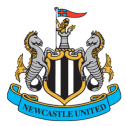 5. Newcastle United
5. Newcastle United
Brand of disappointment: "How the heck do we not have more points?!"
In one obvious, easy-to-understand sense, Newcastle United have been the most boring team in the Premier League. Before the season started, the Sporting Index betting market projected Eddie Howe's side to finish with 67 points. After 13 games, the Sporting Index betting market projects Eddie Howe's side to finish with 67 points.
At the beginning of the season, that projection put them tied for fifth with Chelsea, who, well ... did you see what happened this past weekend?
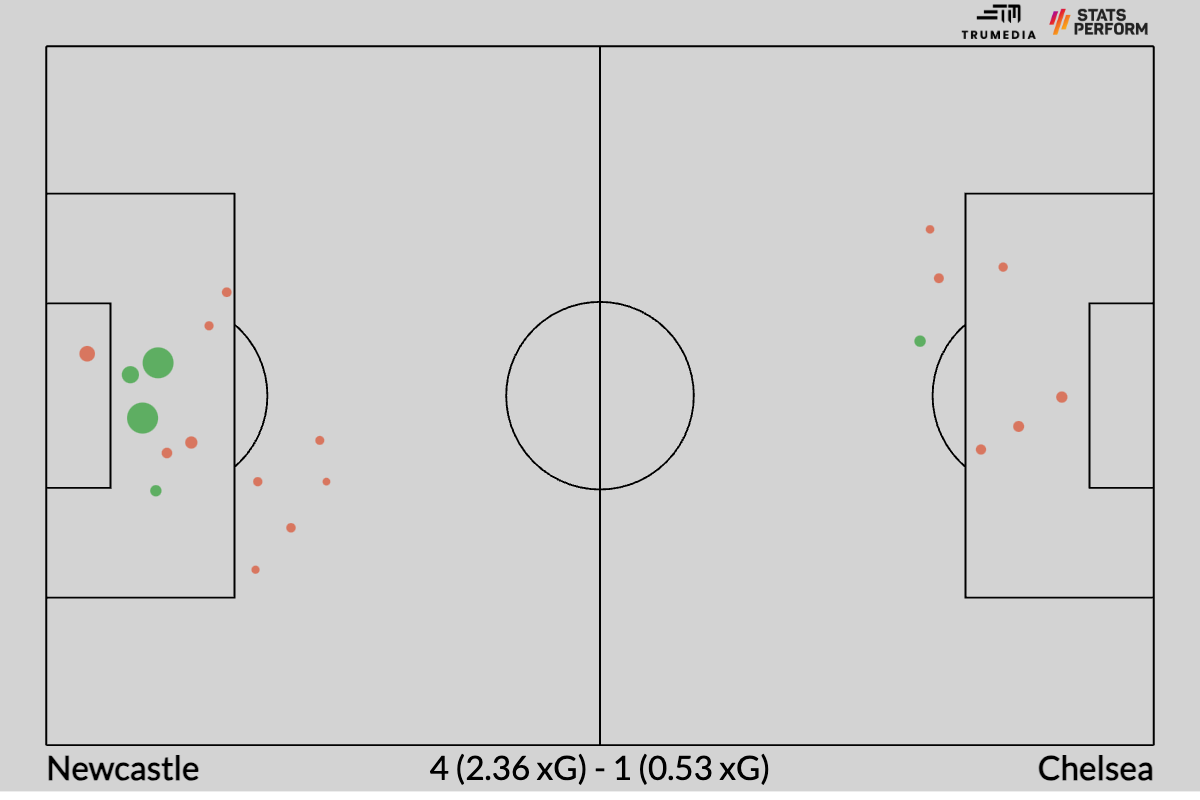 Expected goals (xG) from Newcastle's 4-1 win over Chelsea on Saturday. The larger the dot, the higher the xG. Red are shots, green are goals.
Expected goals (xG) from Newcastle's 4-1 win over Chelsea on Saturday. The larger the dot, the higher the xG. Red are shots, green are goals.
Currently, that projection puts them tied for fourth with Aston Villa. And it's just, well, did you see what they did to that team earlier in the season, too?
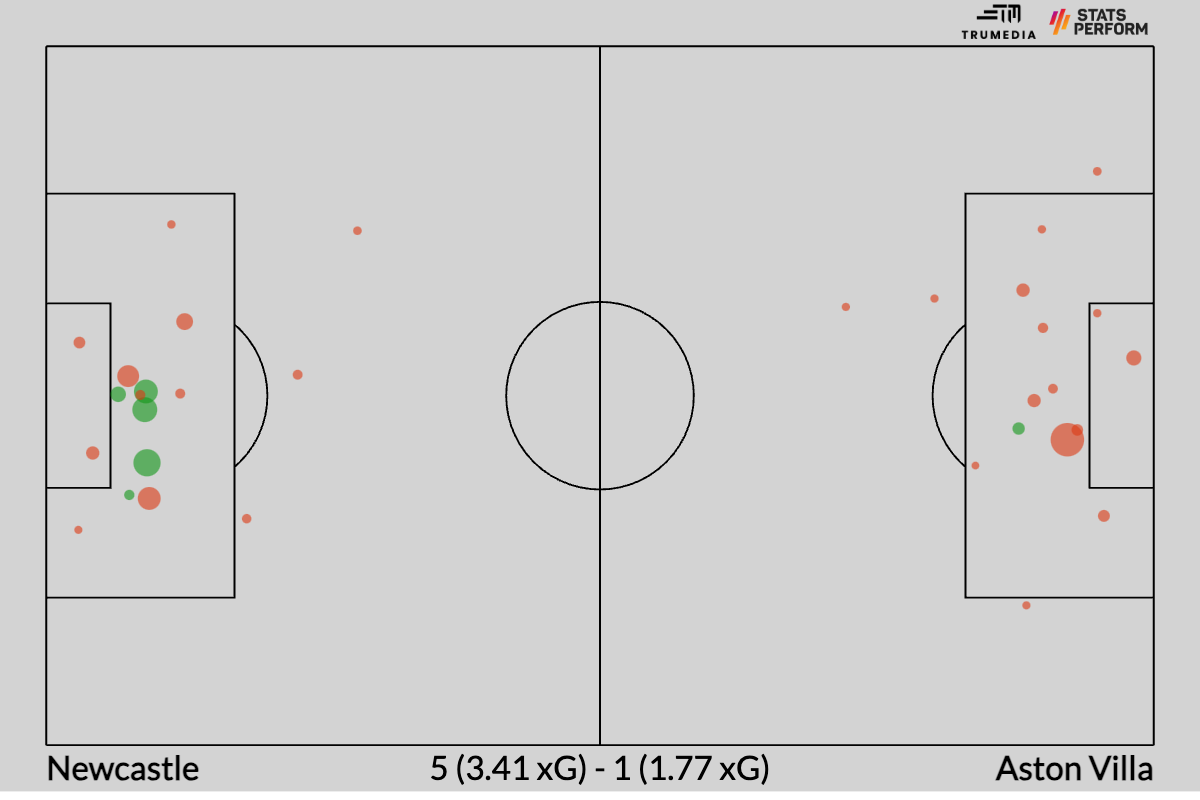 Expected goals (xG) from Newcastle's 5-1 win over Aston Villa in August. The larger the dot, the higher the xG. Red are shots, green are goals.
Expected goals (xG) from Newcastle's 5-1 win over Aston Villa in August. The larger the dot, the higher the xG. Red are shots, green are goals.
Despite absolutely smoking both Chelsea and Aston Villa, winning another match 8-0, and beating Arsenal, Newcastle are currently in seventh place. They've scored 15 more goals than Manchester United. They've allowed two fewer goals than Manchester United. And they ... have one fewer point than Manchester United.
Research in soccer and other sports suggests that early-season volatility like this isn't sustainable. And the idea is quite intuitive, too. Let's say Team A wins four games 5-0 and then loses another game 2-1. And then Team B wins five games, all at 2-1. Team B would have more points, but we'd all recognize that Team A was the better team -- or at least the team more likely to win matches in the future. Newcastle, essentially, is Team A.
Despite being in seventh place, the Magpies are tied with Liverpool for the second-best non-penalty goal differential in the league (plus-14) and are alone in second place when it comes to the more predictive non-penalty expected-goal differential (plus-0.74 per game).
Newcastle's disappointment, then, is that they haven't been able to convert their high-level performance into high-level results. In a not-too-different world, backed by identical shot-creating and -suppression performances, they're part of a four-team title race with Manchester City, Liverpool and Arsenal. Instead, they're likely going to be spending the final two-thirds of the season scrapping it out just to finish in fourth.
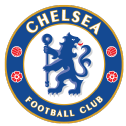 4. Chelsea
4. Chelsea
Brand of disappointment: "We spent all that money for this?!"
Per Transfermarkt data, Chelsea acquired 25 new players over the summer for a combined transfer-fee total of about €462 million. That's over €100 million more than any team in the world spent on transfer fees and over €200 million more than any team in England.
Related: Chelsea have lost more games (five) than they've won (four) this season.
As I wrote about earlier in the season, they haven't been that bad. Here's how the entire Premier League compares by non-penalty xG created and conceded:
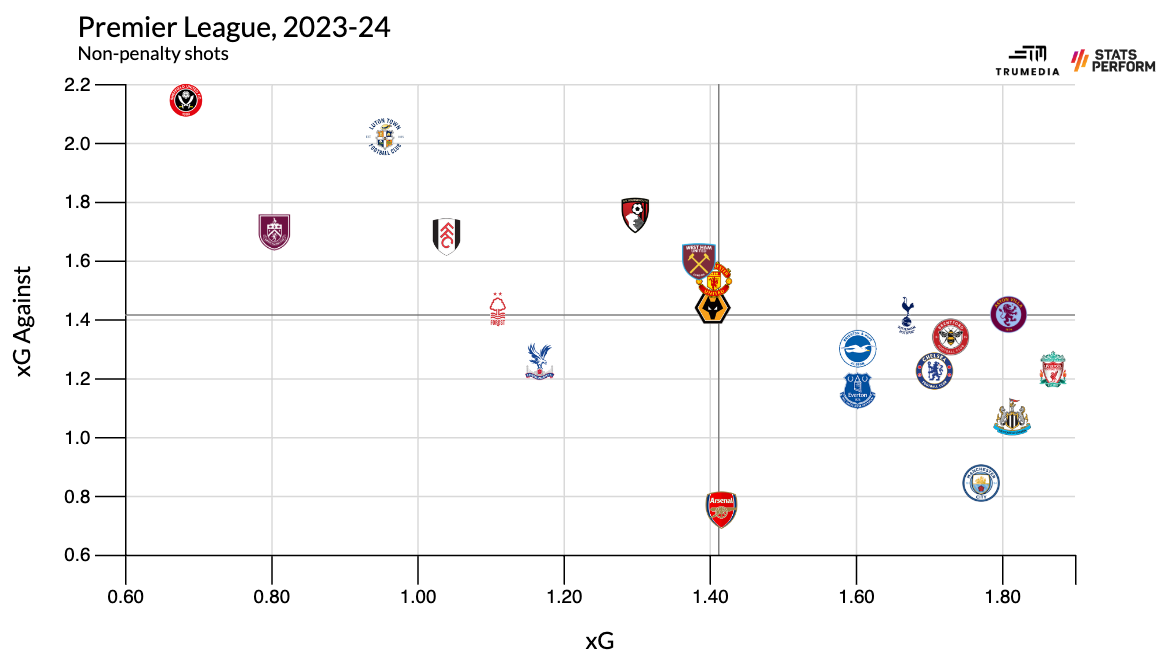
Although they're 10th in the table, Chelsea do have the fifth-best differential in non-penalty expected goals, or xG, in the league. They've created four more xG than they've actually scored, and they've conceded two more goals than their expected total. They're unfortunate to be where they are in the table, but even with more bounces going their way, they'd still be quite far away from the likes of Man City, Arsenal, Liverpool and Newcastle -- the latter of which was made clear Saturday.
That said, I do think this team is making progress. They were one of the more pathetic and unimaginative attacking teams in the league last season, but this year the attack has really clicked at times. They're leading the league in both the number of pullbacks and through-balls attempted. On top of that, when weighted by the number of minutes played, they're the second-youngest team in the league, per FBref, at an average of 25.2 years old.
Among players with at least 900 minutes played this season, only Man City's Erling Haaland is recording a higher non-penalty xG-per-90 minutes rate than Chelsea's 22-year-old striker Nicolas Jackson. While Jackson hasn't been efficient in converting those chances quite yet, he has shown that he might possess perhaps the most important skill in the entire sport: the ability to find space in the center of the penalty area.
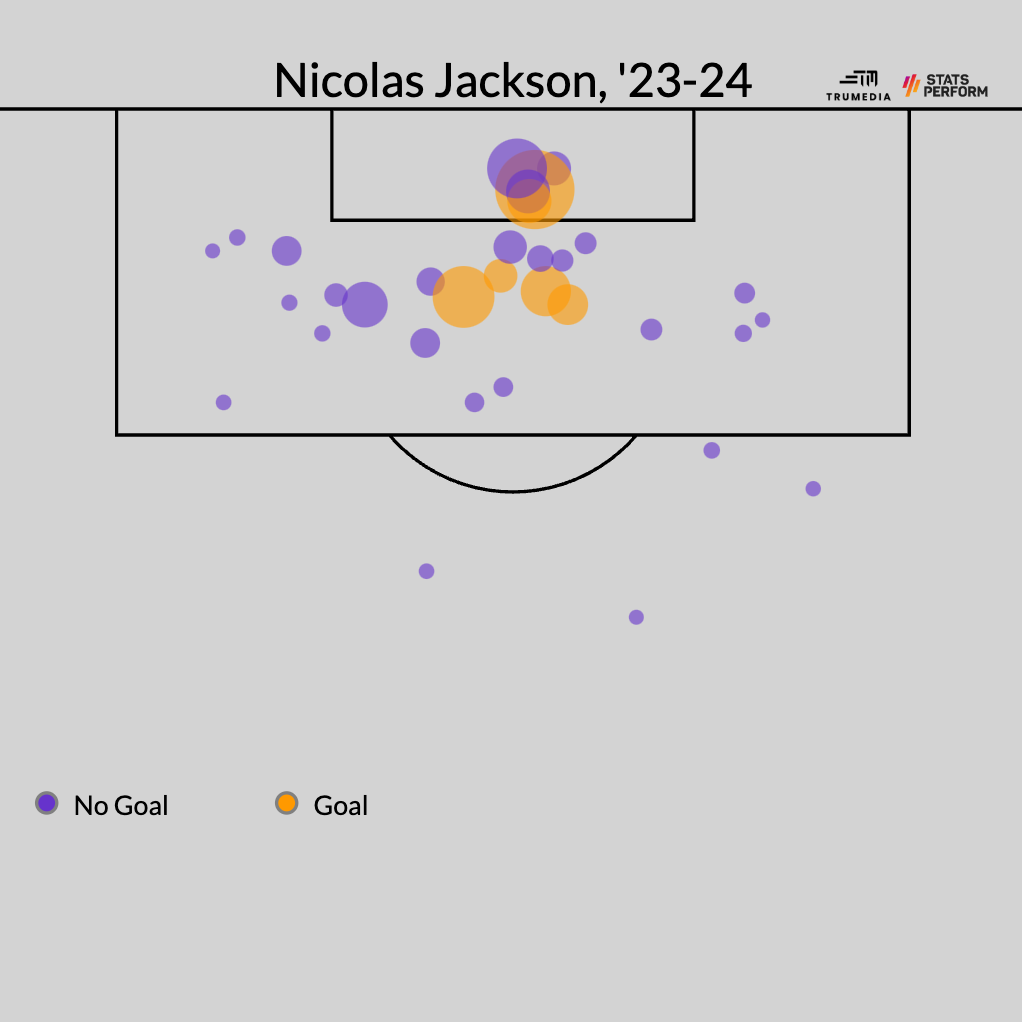 Nicolas Jackson's shots for Chelsea this season. The larger the dot, the higher the xG.
Nicolas Jackson's shots for Chelsea this season. The larger the dot, the higher the xG.
Yet for all the promise this team has shown once you look beyond the surface-level results, they continue to prove the folly of the current ownership group's approach to spending. They've figured out how to out-spend their rivals by locking up tons of future revenue on long player contracts. But even when you discover a cool new trick to invest more money into your squad than any of your rivals, you'll never be able to control the bounce of the ball.
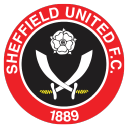 3. Sheffield United
3. Sheffield United
Brand of disappointment: Constant.
I hate to put Sheffield United here because there shouldn't have been much expectation for these guys coming into the season. After all, over the summer they let one of their best players, Sander Berge, go to Burnley, one of their direct rivals in the relegation battle. Even the club itself seemed to be saying Yeah, you know what? We don't really think we're going to stay up, either.
It's still early, but yeah: these guys probably aren't staying up. They were projected to finish tied for last with 30 points by Sporting Index before the season. Now they're projected to finish dead last, with 22 points.
They've scored 11 goals and conceded 36. Through 13 games, that is the second-worst goal differential in the history of the 20-team Premier League era. The only team that was worse was Derby County in 2007-08 (minus-26), and they had one more point than Sheffield United has right now. Derby also ended up finishing with the lowest point total (11) in Premier League history.
As you can see from that graphic above, this is by far the worst team in the Premier League. Over their remaining 25 matches, the question is no longer: Will this team get relegated? Instead, the more pertinent question might be: Is this the worst team in the history of the Premier League?
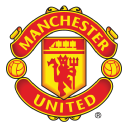 2. Manchester United
2. Manchester United
Brand of disappointment: "Even our wins are depressing!"
I've said this a lot, but the easiest way to be right about Manchester United is to just say the opposite of what everyone else is saying. Given the nature of the sport (extremely volatile) and Man United's place within it (the biggest and most popular team in the biggest and most popular league in the world), this club in particular invokes the most aggressive overreactions.
An unsustainable run of wins almost inevitably provokes questions of "Is this team a title contender?" Meanwhile, a couple losses in a row and, well, everyone needs to be fired. They're never as good and they're never as bad as they seem. Shorting the Man United discourse has been the easiest bet you could make since Sir Alex Ferguson left the club.
That is, until this season. Manchester United have won five of their past six matches. They're in sixth place. They're four points back of fourth. They're six points back of first. And no one seems to be buying it.
To be clear, no one should be buying it. This team has scored 16 goals and allowed 16 goals. That's tied for the 10th-best goal differential in the league. And their non-penalty xG differential is even worse: minus-0.13 per game, 13th best in the league. Just take this past weekend's match against Everton. Yes, they won 3-0. But they also got outshot 24-9 -- by Everton.
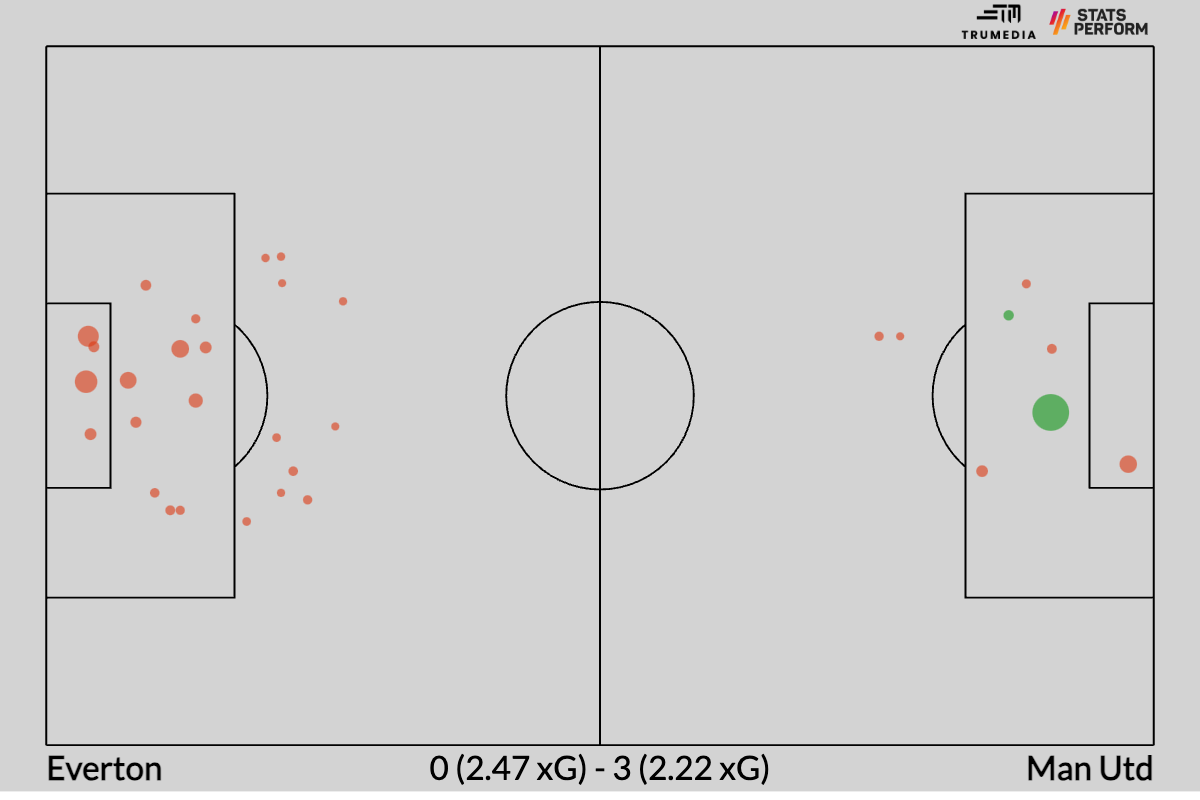 Expected goals (xG) from Man United's 3-0 win over Everton on Sunday. The larger the dot, the higher the xG. Red are shots, green are goals.
Expected goals (xG) from Man United's 3-0 win over Everton on Sunday. The larger the dot, the higher the xG. Red are shots, green are goals.
The performances earlier in the season were so bad, and were accompanied by equally bad results. That's why five wins from sixth still has them in only sixth place. But as the results have improved, the performances have not. The main reason they've won a few games over this recent stretch is that they've played only one team in the top half of the table, and that match was your typical high-profile domination at the hands of Man City in the Manchester Derby.
Perhaps nothing sums up the state of Manchester United at the moment than the fact they've won five of six and no one is really talking about them. That's about to change, though. Their next six matches? At Galatasaray, at Newcastle, Chelsea, Bournemouth, Bayern Munich and at Liverpool. It could get ugly, quickly, again.
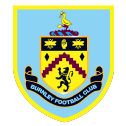 1. Burnley
1. Burnley
Brand of disappointment: "We won the Championship, and now we have four points!"
The only reason Man United aren't No. 1 on this list is because they've at least dug up some points over the past month. That will prevent the bottom from totally falling out. Before the season, Sporting Index projected Man United to finish fourth on 73 points. Now, they're down to 63 in seventh.
Burnley, though, have dropped off by an even bigger margin. After smashing the Championship with a suddenly proactive possession style that won them 101 points, Burnley came into the season with a projection to finish on 41 points -- which would've put them all the way up in 12th place. Today, they're projected to finish with 28 -- in 18th, a full 10 points from Bournemouth's 38 projected points in 17th.
Today, Burnley are last in the league and have fewer points than all but one team in the history of the Premier League through 13 games.
In the Championship last season, coached by former Manchester City captain Vincent Kompany, Burnley dominated by playing like Manchester City. They pressed more aggressively than anyone in the league (represented by passes allowed per defensive action), and then they deliberately controlled possession. They were last in the league in direct speed, a measure of how quickly they moved the ball upfield, measured in meters per second.
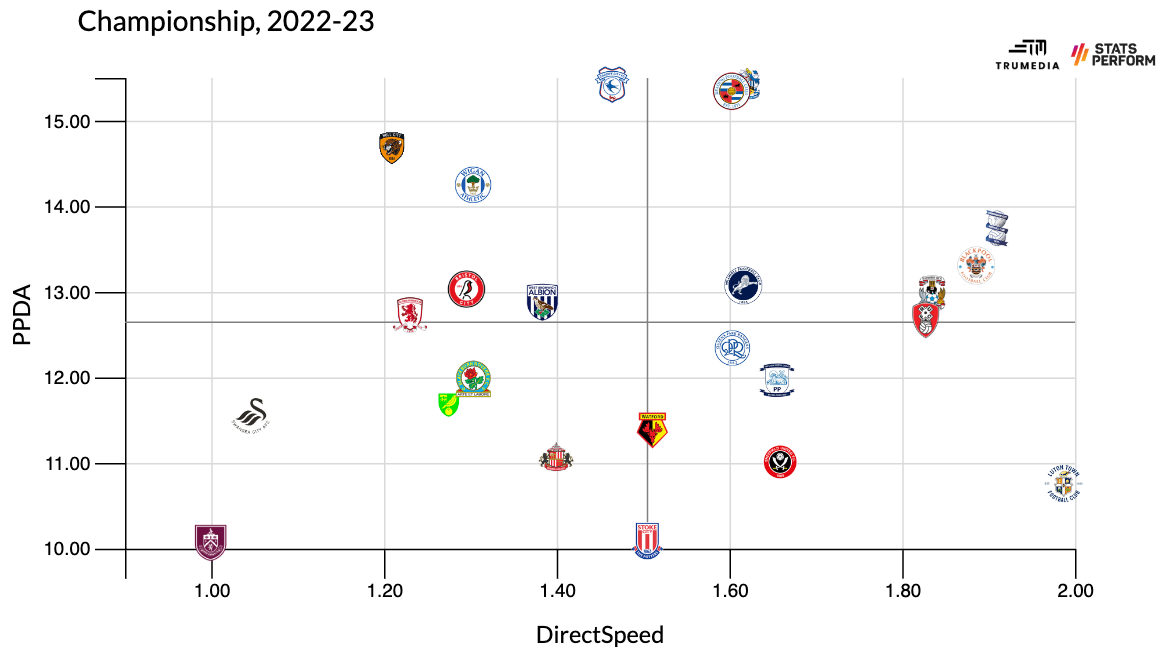 Passes per defensive action (PPDA) and direct speed (meters-per-second advanced forward) in the second-tier Championship last season.
Passes per defensive action (PPDA) and direct speed (meters-per-second advanced forward) in the second-tier Championship last season.
In the Premier League this season, however, they're getting dominated by playing like Manchester City:
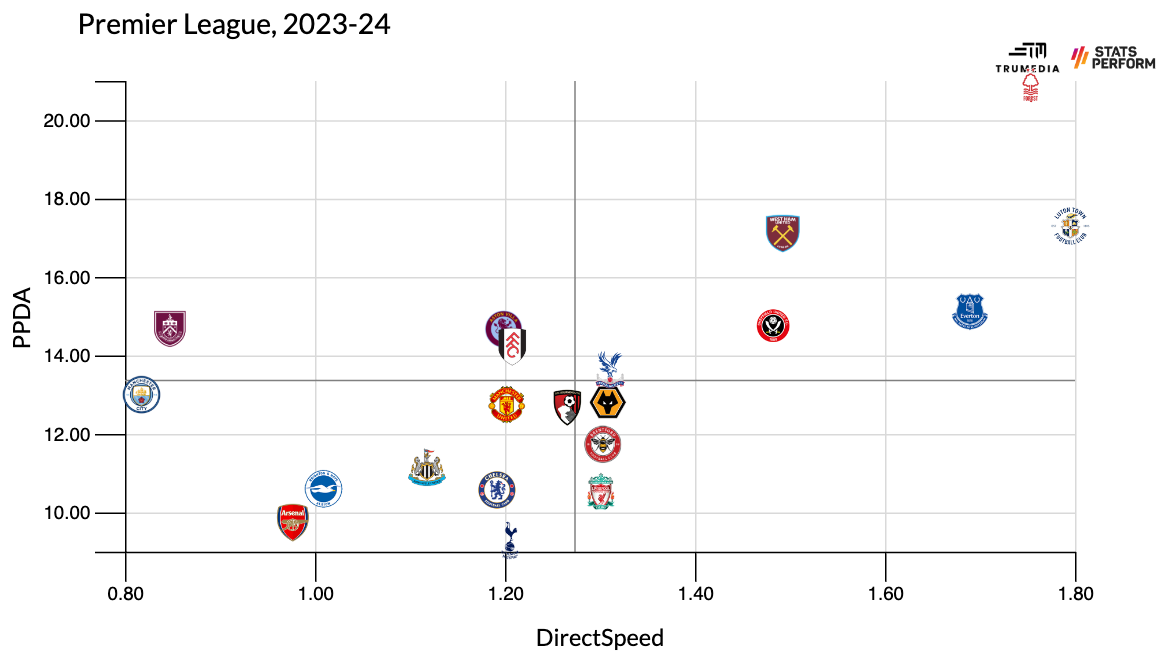 Passes per defensive action (PPDA) and direct speed (meters-per-second advanced forward) in the Premier League this season.
Passes per defensive action (PPDA) and direct speed (meters-per-second advanced forward) in the Premier League this season.
Man City's press has died off in recent years, but that has been fine because it's paired with two things: the steady acquisition of a number of versatile, world-class defenders and the arrival of Erling Haaland, the most efficient goal-scorer in the history of the Premier League.
Man City are comfortable without the ball, but then they defend with it, too, through their slow movement upfield. (The other team can't score if it doesn't have the ball.) And they can move the ball slowly and still score tons of goals because they have Haaland, and Bernardo Silva, and Phil Foden, and Jérémy Doku, and Jack Grealish, and on and on.
Burnley, however, don't have any of those players. They're at a severe talent disadvantage to every team in the league other than their fellow promoted sides. And so you have a team that can't create anything with its press, but then also can't take advantage of the one structural advantage you get from not pressing: opportunities to quickly attack into the space the opposition left vacant as they moved the ball closer to your goal.
The big downside risk coming into the season for Burnley was that the style they played was perfectly correct for the Championship and perfectly wrong for the Premier League. Now, 13 games in, that has quite clearly been the case. And with only four points from those games, it might already be too late for them to change.
